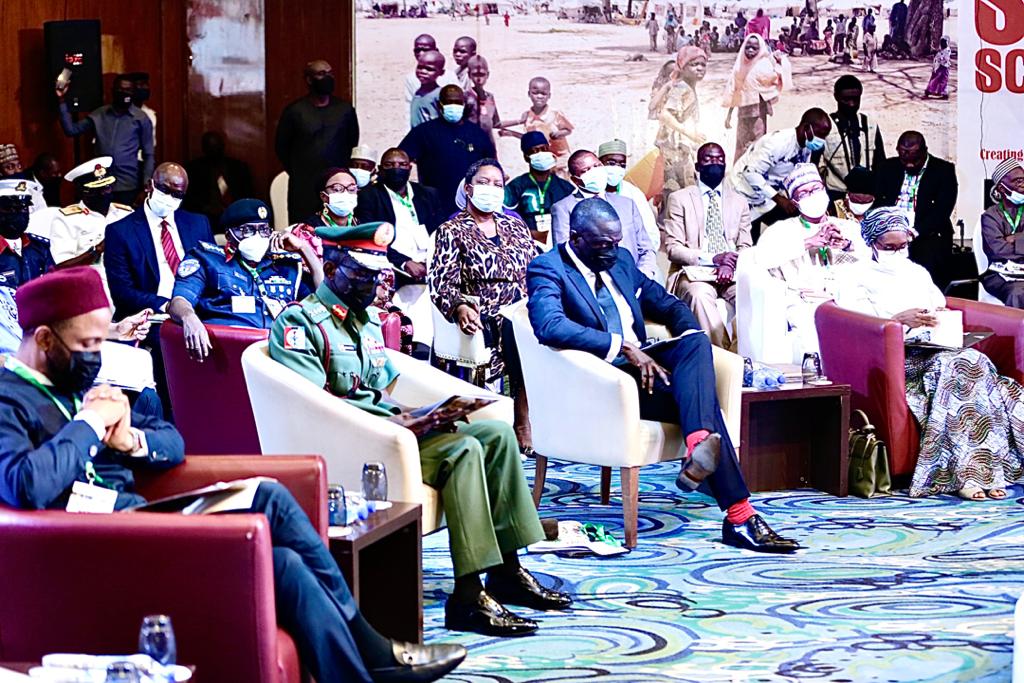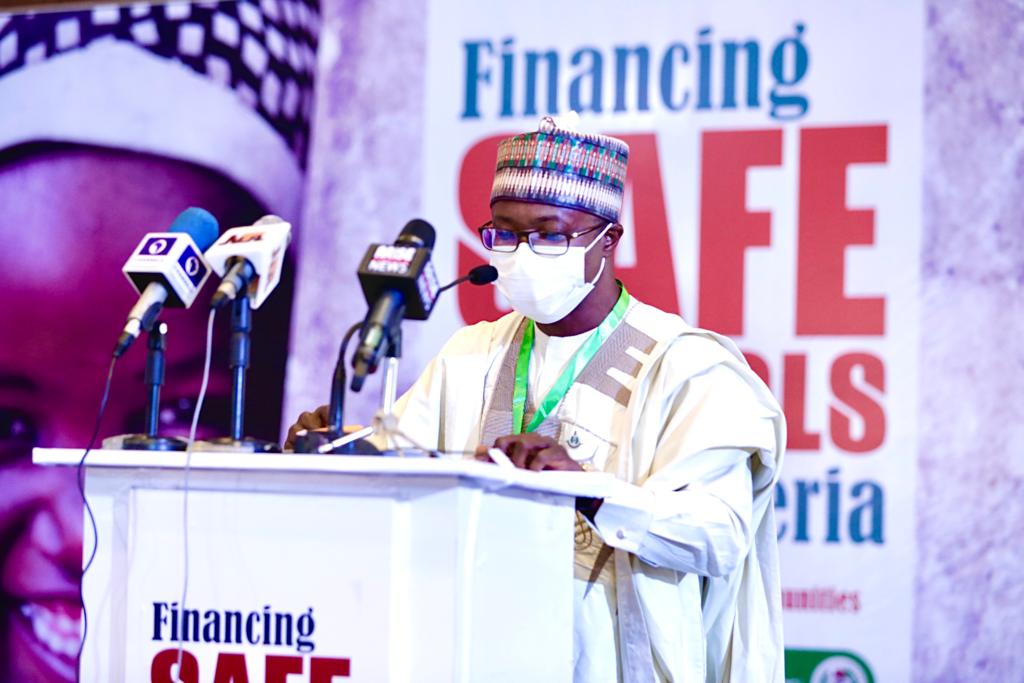The federal government has warned that schools in Nigeria must never be used as instruments of terror campaigns; that children and teachers must again be free to go to school unharmed and unafraid.
In a welcome remark by Mr. Aliyu Ahmed, Permanent Secretary, Federal Ministry of Finance, Budget, and National Planning, at the recently held Dialogue on Financing Safer Schools, in Abuja, he said that Nigeria’s education system is facing a crisis partly as a result of historical financing gaps in the sector, given the fast growing and youthful population as almost 44 percent of Nigeria’s population is between the ages of 0 – 14.

According to him, the challenge is exacerbated by conflict over the years particularly in the north east of the country resulting in the destruction of several schools. He noted that any threat to schooling must be taken as a threat to the very existence of the nation.
“The ongoing COVID-19 pandemic has also made matters worse by increasing learning poverty in the country by about 10 percent, according to recent world bank estimates. Over 13 million Nigerian children are now out of school- the highest rate of out of school children in the world,” he also noted.
On the innovation needed to handle the challenge, he said: “As we deliberate today, we have to think outside the box and be innovative in our approach to facilitate sustained safe schools and safe education giving the funding constraints we currently face. I want to encourage all stakeholders – both in the public and private space – to work together for a long-lasting solution to this scourge of insecurity in our schools.”
On the role of the Ministry in the fight against insecurity, Mr. Ahmed said that the Ministry was heavily involved in the creation of the safe schools initiative (SSI), following one of the darkest events in our Nation’s history that sent shock waves across the entire globe – that is the kidnapping of over 200 girls from their school dormitories in Chibok, Borno State in April 2014.
Taking the audience down memory lane, he said that the federal government, in collaboration with the United Nations (UN) Special Envoy for Global Education, the Right Honorable Gordon Brown, a former United Kingdom (UK) Prime Minister, announced the SSI on May 7, 2014, during the World Economic Forum Africa (WEFA) in Abuja.
The objective of the SSI, according to Mr. Ahmed, is to urgently protect hundreds of schools across the country, starting with schools in North Eastern Nigeria from future attacks and kidnaps.
This announcement was followed by the inauguration of a Steering Committee in July 2014, co-chaired by the former minister of finance and Mr. Brown, including the executive governors of Adamawa, Borno, and Yobe States, as well as representatives of the donor community, the security services, and the private sector.
In October 2016, the SSI was, according to him, subsumed by the Presidential Committee on the Northeast Initiative (PCNI).
He noted further that “at design, the SSI focused on three work streams. The first entails the transfer of school children from high security risk areas in the worst affected states to schools in safer parts of the country. This program transferred 2400 IDP students (800 from each state) in Adamawa, Borno and Yobe to 43 federal unity colleges (FUCs) across the northern part of the country on full scholarship.
“The second workstream focused on a Schools Rehabilitation Program which involves upgrading schools’ infrastructure, physical protection such as proper fencing, installation of alarm systems, school guards, community-based policing; and developing school security plans and rapid response systems.
“The third workstream, implemented through UNICEF, is the Innovative Education Strategies for communities and camps absorbing internally displaced persons (IDPs). This includes the provision of innovative teaching and learning materials in IDP camps and in host communities.
Apart from commending Mr. Brown, he also expressed gratitude to several governments including those of the UK, Norway, Germany and several international organisations like United Nations International Children’s Emergency Fund (UNICEF) and the World Bank who have supported the safe schools initiative since its inception, and made some of its achievements possible.






